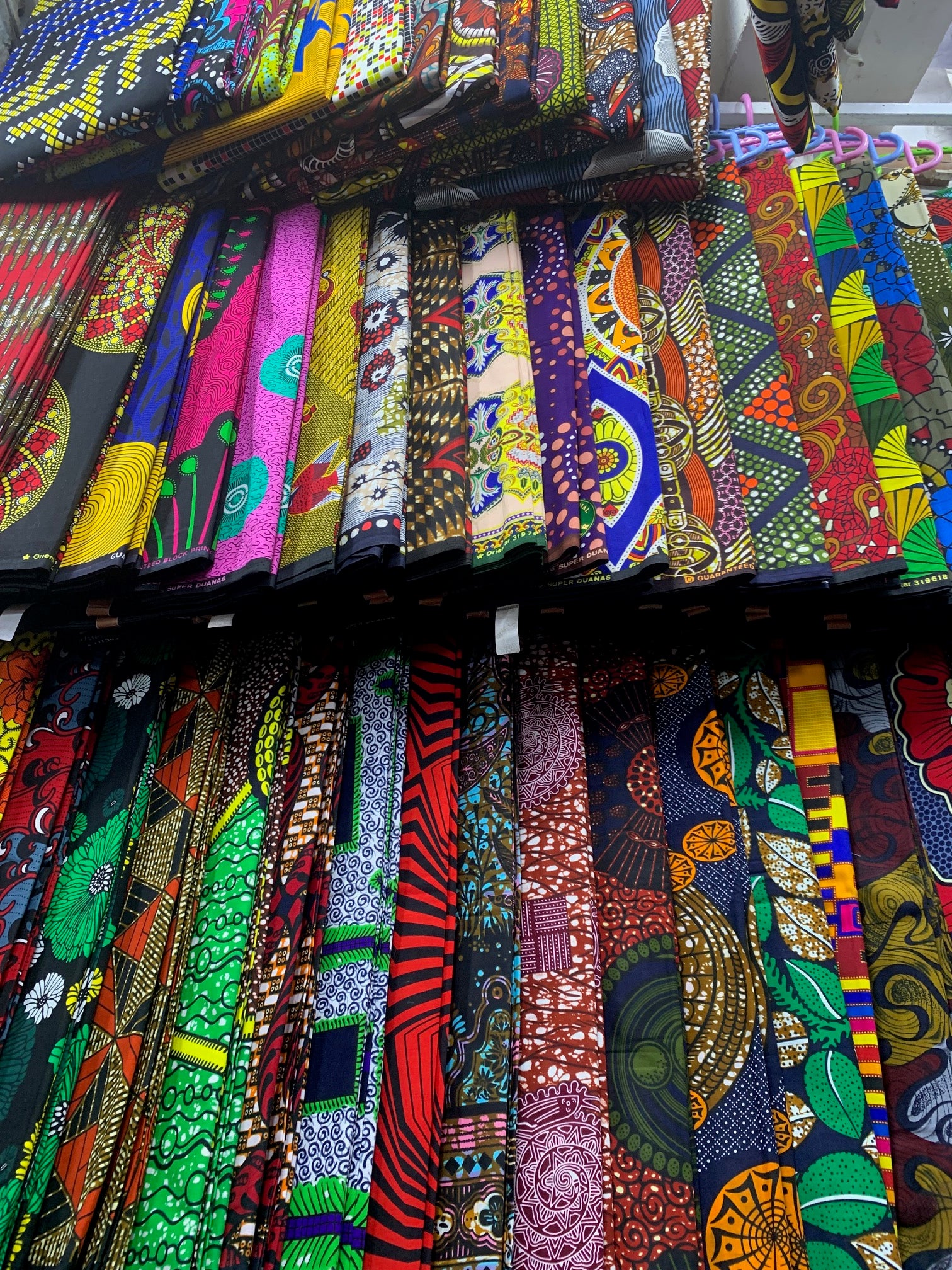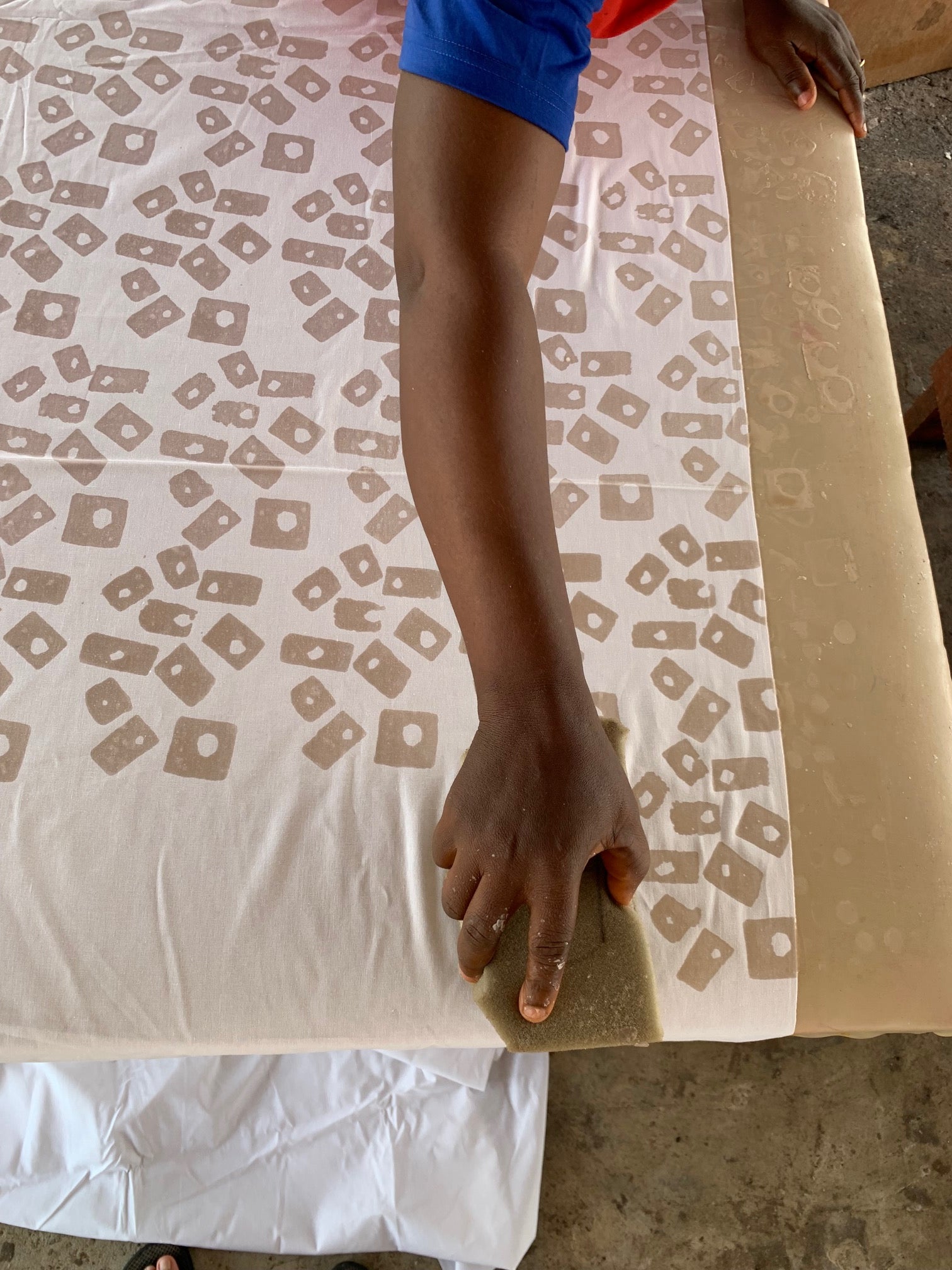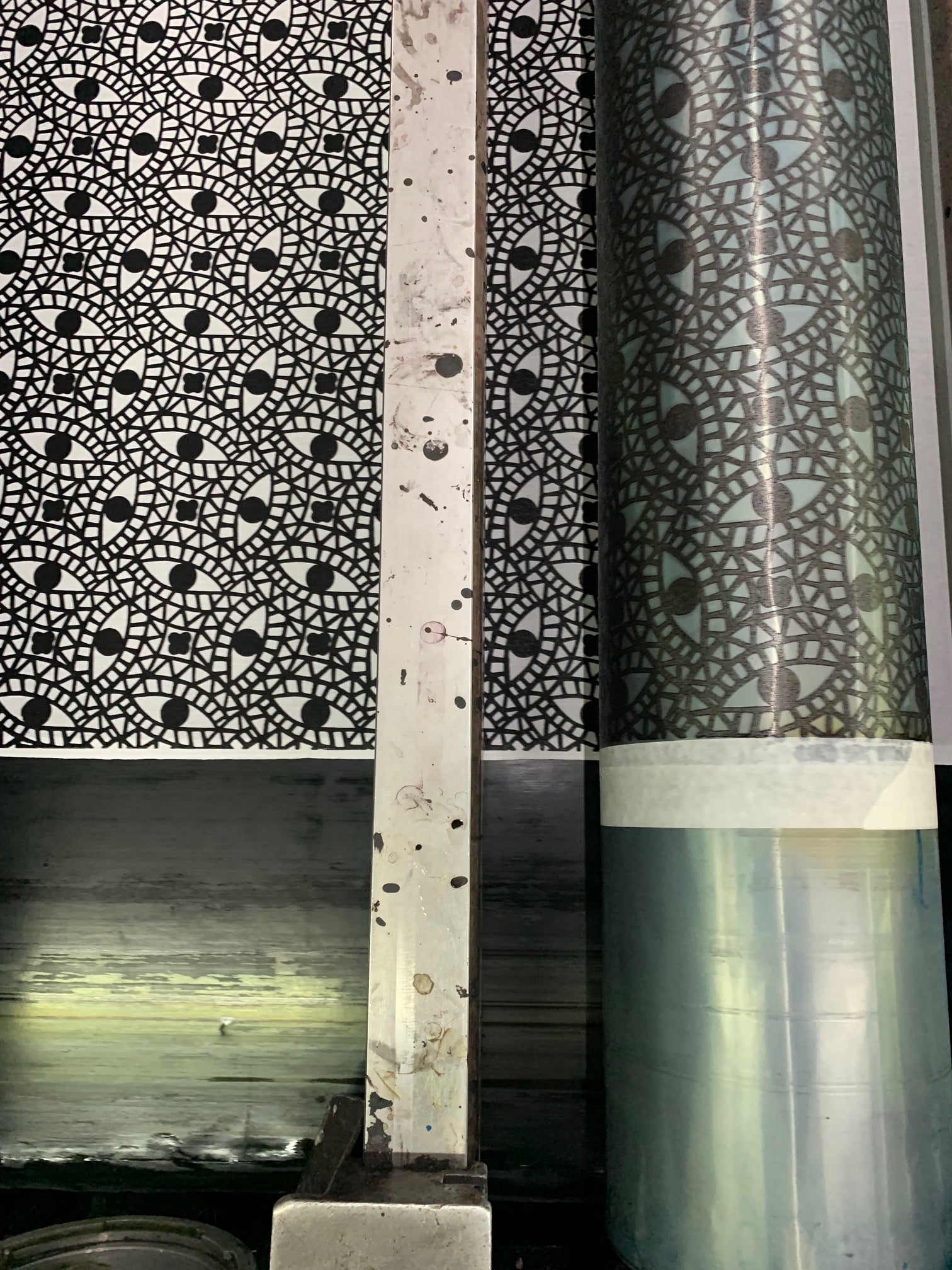A Textile Revolution
The history of African textiles is a global story, both ancient and modern, and a powerful symbol of the changing tides of culture, politics, and trade. While we are continuously inspired by the beauty of these textiles, we're also motivated by the history that they represent and the opportunity they offer to create social and economic change.
What are Kitenge and Ankara?

While the continent has a deep and varied history of textile production, kitenge, the name given to textiles produced in East Africa, and ankara, prints produced in West Africa, are our main inspiration.
Traditionally woven to communicate messages or commemorate events, kitenge and ankara incorporate both the history of ancient civilizations and the history of colonialism. These patterns are often referred to as Dutch wax prints because Dutch colonists were the conduit between colonies in Southeast Asia (today's Indonesia), where the technique of dyeing fabrics with wax, batik, had been used for centuries, and their colonies in West Africa, where they sold machine-made batik replicas we now know as wax prints.
Today these prints are sold across the continent, and produced around the world. The modern story of African wax prints is a global story.
The Decline and Regrowth of African Textile Production.

Visit a market anywhere on the African continent, and you'll see piles of second-hand clothing shipped from America and sold cheaply in second, third, and fourth-hand markets. These t-shirts and pants, originally donated to charity shops, have been sold and resold before landing at African ports, under-cutting local industry and effectively shutting down textile production across most of the continent.
By sourcing from East Africa-based manufacturers, we hope to contribute to the regeneration of a local industry, helping to create jobs and opportunities that have all but disappeared.
Mzuri. Ethical, Sustainable Fashion.

In Swahili, mzuri, the inspiration for our name, means good. Plain and simple. We strive to embody this ethos in everything that we do.
Recognizing our place in the long history of textile production on the African continent and globally, we are committed to creating a business ecosystem that is respectful of culture and tradition, focused on fair and equal practices, and contributes to the growth of truly sustainable economies.





